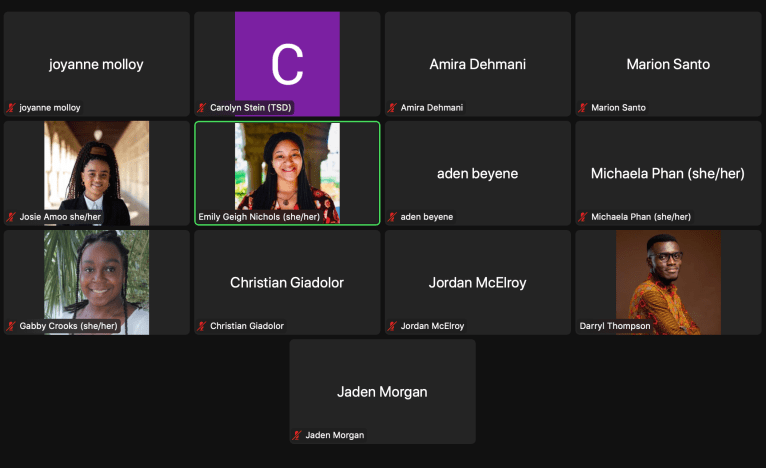Undergraduate senators unanimously passed the Mental Health Liaison Resolution at their Thursday meeting. This role will allow each dorm on campus to choose a student to work closely with the University’s Counseling and Psychological Services (CAPS). The Undergraduate Senate also discussed the new COVID-19 testing requirements and reviewed a bill on establishing a transfer community center.
The resolution comes after senators raised concerns about the elimination of the residential Peer Health Educator (PHE) role. Previously, PHEs would help residents navigate the University’s various physical and mental health resources, as well as provide additional emotional support to residents.
According to Senator Darryl Thompson ’23, the University provides many different mental health resources to students, but currently seems to “lack a direct chain of communication between students and CAPS.”
The Mental Health Liaison role will serve to remedy that issue. A liaison will be chosen from each dorm and will work closely with CAPS to help students access the University’s existing mental health and wellness resources. The liaisons will also be responsible for informing students about any campus events surrounding the subject of mental health.
The Mental Health Liaison role will be more similar to the Frosh and Sophomore Service Liaisons model than the PHE model. The position currently will be unpaid, although Thompson did point out that CAPS could choose to compensate liaisons. Mental Health Liaisons will not be responsible for helping students work through their crises, only for relaying information about where to find help.
The Undergraduate Senate also raised concerns about the University’s decision to suspend weekly COVID-19 testing after the first two weeks of spring quarter. Senators hope to meet with either Provost Persis Drell or Associate Vice Provost for Environmental Health & Safety Russell Furr to further understand this decision and figure out the best way to support students moving forward.
“I do think that surveillance testing should go until the end of this year,” Senator Amira Dehmani ’24 said.
Senator Emily Geigh Nichols ’23 also questioned if the University should phase out weekly testing when it still hasn’t addressed the “educational disparities” that exist under the current testing system. According to Nichols, not all faculty have been accommodating to students who have tested positive and must isolate, which has created barriers for some students.
“I don’t know if they’re prepared to move into the phase of non-weekly testing,” Nichols said.
Dehmani echoed Nichols’ sentiment. “Especially with non-accommodating professors, I can see students not taking tests because they don’t want to get that positive test, and then go to class and like risk other students if there’s not a mandatory like testing every week,” Dehmani said.
Inspired by the recent opening of the Disability Community Space, senators also reviewed a bill on creating a permanent community center for transfer students. Kyle Becerra ’24, transfer ex-officio senate member, presented the bill to the Senate.
The resolution points out that since 2019, the number of matriculating transfer students has increased by 235%. Despite this increase, transfer students still struggle to find a consistent place to congregate. Becerra even described the transfer community as a “nomadic group on campus” in his presentation.
“We have student-parents, we have students who have been formerly incarcerated, we have low-income students, we have international students, you name it,” Becerra said. “A community center for transfer students would definitely be a great space for us to share in our unique diversity.”
Becerra also emphasized the unique challenges transfer students face. “We have to hit the ground running when we enter Stanford,” Becerra said. “And so just being able to have this space where we can relate to each other and build community will be very helpful.”
Senators will vote on this bill at their next meeting on Thursday.
